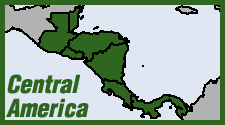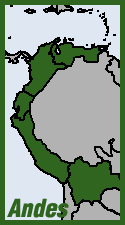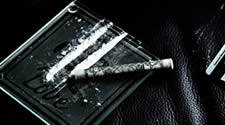 Last month, Jesus Vicente Zambada Niebla AKA "El Mayito"—the son of Sinaloa Cartel kingpin Ismael Zambada AKA "El Mayo"—filed pleadings in a Chicago federal court accusing the US Justice Department of giving the cartel "carte blanche to continue to smuggle tons of illicit drugs into Chicago and the rest of the United States." Zambada's pleadings claim that protection included promises to be kept apprised of US and Mexican government investigations close to the "home territories" of cartel leaders so they "could take appropriate actions to evade investigators"—even as the US had indictments, extradition requests, and rewards for the apprehension of the top Sinaloa Cartel leadership.
Last month, Jesus Vicente Zambada Niebla AKA "El Mayito"—the son of Sinaloa Cartel kingpin Ismael Zambada AKA "El Mayo"—filed pleadings in a Chicago federal court accusing the US Justice Department of giving the cartel "carte blanche to continue to smuggle tons of illicit drugs into Chicago and the rest of the United States." Zambada's pleadings claim that protection included promises to be kept apprised of US and Mexican government investigations close to the "home territories" of cartel leaders so they "could take appropriate actions to evade investigators"—even as the US had indictments, extradition requests, and rewards for the apprehension of the top Sinaloa Cartel leadership.

 The US Coast Guard announced the interception of a so-called “
The US Coast Guard announced the interception of a so-called “ Speaking before a conference of campesina women in Cochabamba July 25, Bolivia's President Evo Morales said he fears a US plot to frame him for drug offense: "Do you know what? I think they have to be preparing something. So much that I'm afraid to go with our airplane to the United States. Surely when we arrive, they can plant something and detain the presidential plane."
Speaking before a conference of campesina women in Cochabamba July 25, Bolivia's President Evo Morales said he fears a US plot to frame him for drug offense: "Do you know what? I think they have to be preparing something. So much that I'm afraid to go with our airplane to the United States. Surely when we arrive, they can plant something and detain the presidential plane." A
A  The Supreme Court heard arguments Feb. 28 in DePierre v. United States, on whether the term "cocaine base" in the Federal Sentencing Guidelines is limited to "crack" or includes all forms of cocaine chemically classified as a base. The US First Circuit Court of Appeals in Boston ruled that "cocaine base" refers to "all forms of cocaine base, including, but not limited to crack cocaine." Counsel for the petitioner argue that Congress did not intend "cocaine base" to refer to substances used in the crack-production process.
The Supreme Court heard arguments Feb. 28 in DePierre v. United States, on whether the term "cocaine base" in the Federal Sentencing Guidelines is limited to "crack" or includes all forms of cocaine chemically classified as a base. The US First Circuit Court of Appeals in Boston ruled that "cocaine base" refers to "all forms of cocaine base, including, but not limited to crack cocaine." Counsel for the petitioner argue that Congress did not intend "cocaine base" to refer to substances used in the crack-production process.





Recent comments
2 days 9 hours ago
2 days 16 hours ago
3 weeks 3 days ago
4 weeks 2 days ago
8 weeks 2 days ago
12 weeks 1 day ago
16 weeks 1 day ago
16 weeks 6 days ago
26 weeks 6 days ago
31 weeks 8 hours ago